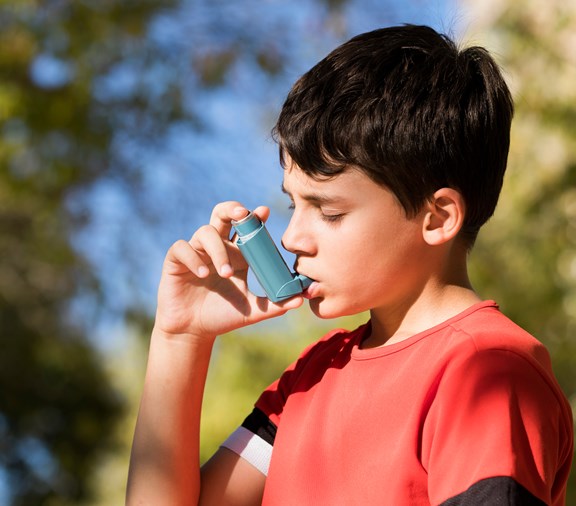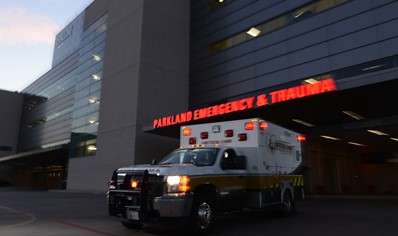
What is an asthma trigger? Anything that causes your asthma symptoms to flare up. Knowing your asthma triggers is important – if you or your child can avoid those specific triggers that make your asthma worse, you’ll have an easier time managing your condition.
Each person’s asthma triggers can be unique. If you are able to understand your specific triggers, then you and your doctor can develop a targeted plan of action that addresses your needs. Learn more about how to create asthma action plans.
It may be tricky to identify your triggers, but we have some tips below on how to get started.
Some common asthma triggers include:
Allergies
Ask your doctor about how to identify allergies. Allergies may be from things you breathe in, like pollen or house dust, or it can be from food you eat. You may be able to get tested for certain allergies if your doctor suspects that may be a problem for you.
Cold air
When a cold front moves in, be prepared. Wear a scarf that covers your mouth and nose to help warm up the air before you breathe it in.
Respiratory viruses
Respiratory viruses like influenza (the flu) or even the common cold may be a trigger. Be sure to get a vaccination to prevent the flu every winter. Avoid crowded places where cold viruses are easily spread.
Stress
Stress is a common feeling, and it can be good or bad. (Planning a wedding can be stressful, even if it is a happy occasion.) Learning to recognize stressors may allow you to manage them better.
Exercise
Vigorous exercise can cause asthma symptoms to flare up. If this is the case for you, start your exercise slowly to warm up or try other types of exercise like yoga, swimming, or strength training.
Air pollution and other irritants
Be aware of high-pollution days by watching the weather report on your local news station or by looking up air quality online. If you are able, avoid exercising or working outside on days when pollution levels are high.
How to figure out your triggers
Keep a symptom diary.
- Track your asthma symptoms and possible causes to tell what you might be allergic to. This is especially important if you think you have a food allergy.
- Watch the pollen count on the nightly news or look it up online. This will help you know what is in the air. When you talk to your doctor, you may be able to tell them that you’ve noticed your asthma is worse when certain kinds of pollen are high. This can help direct your doctor with allergy testing.
- Be weather aware. This will help you identify if cold air or pollution affect your asthma.
- Make note if you seem to have a harder time getting rid of a cold compared to other people you know, or if your colds always end up causing difficulty breathing from your chest.
Use a peak flow meter.
This device measures how well your lungs are working – and it can help you identify early warning signs of an asthma attack.
Join the Be in Control Program.
Work with a PCHP Care Manager to help develop a personalized asthma management plan.
Once you’ve identified your triggers, you can try your best to avoid the trigger or limit your exposure. You can also create an asthma action plan with your doctor or your child’s doctor. This action plan will help to plan ahead for any medical emergencies that might happen away from home.
Not sure where to begin? Consider the Be in Control program.
Enjoy free membership in Parkland Community Health Plan’s Be in Control program, with educational materials and resources to support the management of asthma and diabetes.
You can also earn paid rewards:
- $20 value when you remain enrolled in the Be in Control program for 3 months.
- $50 value if you have asthma and remain enrolled in the program for 6 months.



